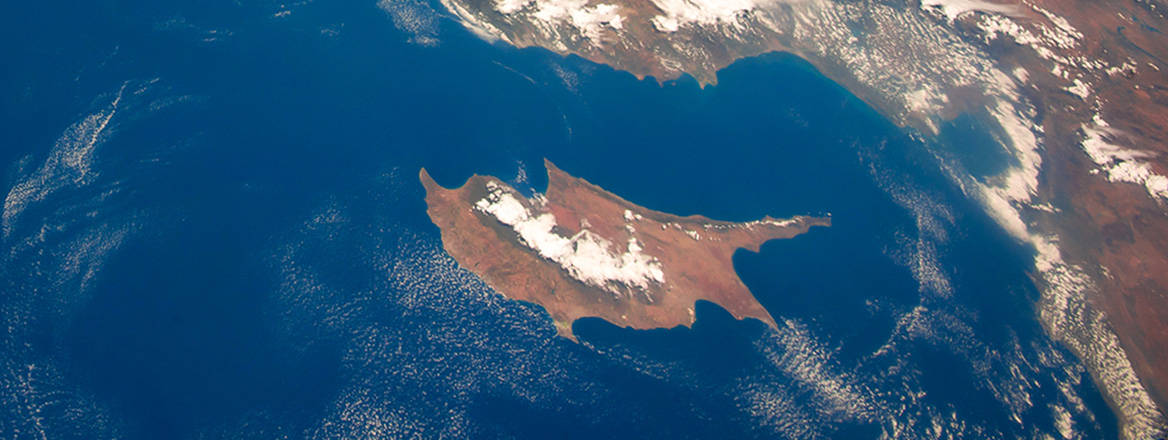Response to ‘The Eastern Mediterranean: Cyprus and the Geopolitics of Turkish Irredentism’
The Embassy of the Republic of Türkiye to the United Kingdom provided the following response to the article.
The article ‘The Eastern Mediterranean: Cyprus and the Geopolitics of Turkish Irredentism’ contains numerous inaccuracies and misleading discourses about Türkiye, the Eastern Mediterranean, and the Cyprus issue. It relies on questionable references, adopts an inflammatory and divisive tone, and makes an inappropriate, inaccurate and unacceptable comparison of Turkish foreign policy with the expansionist Nazi philosophy of Lebensraum.
We would first like to address some of the misrepresentations in the article. The Memorandum of Understanding signed in 2019 between Türkiye and the UN-recognised government of Libya is in full conformity with international law.
Türkiye has always been a reliable energy partner, actively contributing to the energy security of our region. We have a track record of realising large-scale international energy projects that ensure the energy security not only of Türkiye but also of Europe. Projects like the Trans-Anatolian Natural Gas Pipeline, the Baku–Tbilisi–Ceyhan pipeline, the Southern Gas Corridor, LNG infrastructure, and electricity interconnections have brought stability and security to the energy markets in our region. Our expectations for future regional energy projects are inclusivity and mutual respect of rights. Energy in the Eastern Mediterranean can and should be an area of cooperation rather than conflict.
Regarding a possible Turkish-Syrian agreement, two neighbouring countries can of course negotiate and reach an agreement on maritime delimitation. It is only natural for Türkiye to conclude agreements regarding maritime areas with countries with which we share land borders.
We are ready to discuss delimitation of maritime jurisdiction areas with all relevant coastal states that we recognise, in a just and equitable manner and in line with international law. This approach applies to Syria, as well as any other relevant state. However, even the lateral maritime boundary between Türkiye and Syria has not been delimited yet. There are many steps that need to be taken before reaching an agreement on maritime delimitation.
Labelling the mere possibility of a maritime delimitation agreement between two neighbouring countries as part of an ‘expansionist agenda’ is unfortunate and ill-conceived. It is difficult to understand how anyone would object to even the possibility of an agreement being concluded between two neighbouring countries.
Türkiye remains committed to resolving disputes in the Eastern Mediterranean in accordance with international law and the principles of equity. Maritime jurisdiction areas should be delimited through mutual agreements between coastal states, as has been done in the Black Sea. There is no reason why this cannot be achieved in the Mediterranean. Türkiye’s proposal to convene an Eastern Mediterranean Conference, a joint inclusive platform for cooperation between all regional actors, remains on the table.
On the Cyprus issue, the article is again misleading. The UK, having historical knowledge of the Island, is aware of the aggressive policies carried out by Greek Cypriots against Turkish Cypriots. Over the past six decades, Greek Cypriots have rejected numerous proposals, including the 2004 Annan Plan, which the Turkish Cypriots accepted. The persistent refusal of Greek Cypriots to recognise Turkish Cypriots as equal partners is demonstrated through their unilateral actions that disregard the rights of Türkiye and the Turkish Republic of Northern Cyprus (TRNC). Naturally, Türkiye will not accept any unilateral impositions in areas under its or the TRNC’s maritime jurisdiction.
Turkish Cypriots, who are the co-owners of the island, call for recognition of their inherent rights, namely sovereign equality and equal international status. They remain ready to work toward a peaceful and cooperative future alongside Greek Cypriots as two separate, neighbouring states.
The Turkish Cypriots have no more time to lose with empty promises. It is time to allow reality to guide us in the way forward.
Elvan Haciefendioglu, First Counsellor, Turkish Embassy in London
© Elvan Haciefendioglu, 2025, published by RUSI with permission of the author
The views expressed in this Commentary are the author’s, and do not represent those of RUSI or any other institution.
For terms of use, see Website Ts&Cs of Use.
This contribution was provided in response to the following article:

- Jim McLeanMedia Relations Manager+44 (0)7917 373 069JimMc@rusi.org
